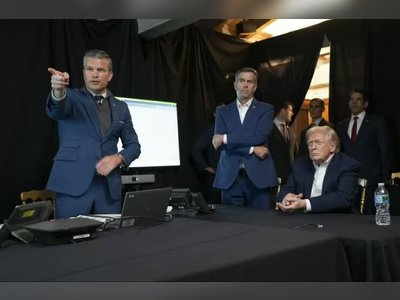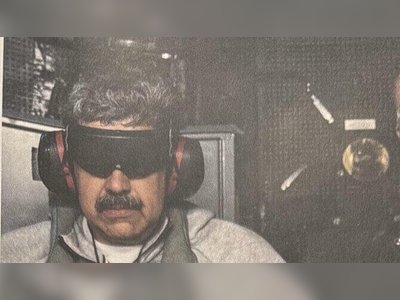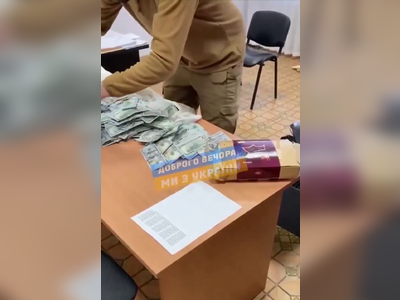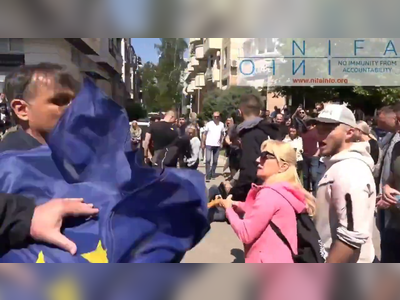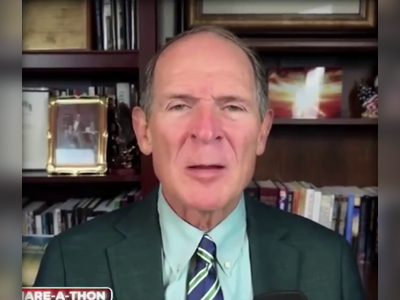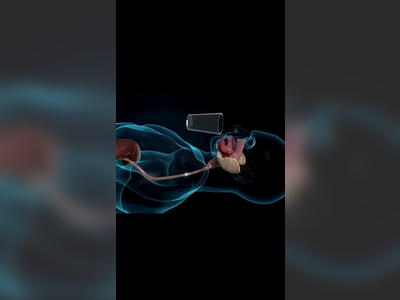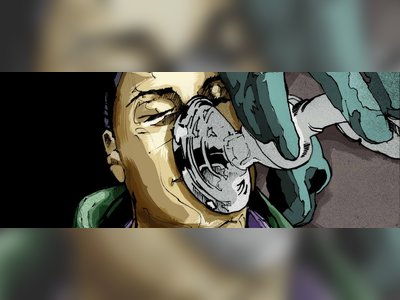Germany Holds Snap Parliamentary Elections Amid Coalition Collapse
Over 59 million voters participate in elections following the disbandment of Chancellor Olaf Scholz's coalition, with conservative parties leading in polls.
Berlin - Today, snap parliamentary elections are being held in Germany following the collapse of Chancellor Olaf Scholz's three-party coalition.
Public opinion polls indicate a strong lead for conservative parties ahead of the election.
This marks only the fourth instance of snap parliamentary elections in Germany's modern history since World War II. More than 59 million eligible voters are set to choose 630 members of parliament, who will serve a four-year term with the responsibility of electing a new Chancellor and government.
A total of 29 parties are participating in these elections, though only 10 are fielding candidates in all 16 federal states.
The Christian Democratic Union (CDU) is the most prominent party, contesting in 15 states, with its sister party, the Christian Social Union (CSU), participating in Bavaria.
The highest number of parties is competing in Berlin and North Rhine-Westphalia, with 18 lists in each, while 17 lists are present in Bavaria.
Many parties are contesting in only one state.
Polling stations are open from 8 AM to 6 PM local time, with exit poll results expected to be released immediately after voting ends.
Initial official projections are anticipated throughout the election night.
Voters in Germany have two votes on their ballot paper.
Candidates' names in individual electoral districts are placed on the left side of the ballot, while party names contesting in the voter's state are listed on the right.
To qualify for seats in the Bundestag, parties must secure over five percent of the votes from the right side of the ballot, thereby surpassing the mandatory threshold.
The voting system includes considerations for individual candidates, as votes for these candidates can lead to direct mandates, even if their party falls short of the threshold.
Many Germans have already cast their votes by mail, as this option is available even for those who are at home on election day.
Voting by mail is the only option for Germans residing abroad, as voting in embassies and consulates is not permitted.
Polling suggests that the opposition CDU and its Bavarian counterpart CSU have led in national surveys for over two years, garnering approximately 30 percent support according to the latest figures.
The far-right Alternative for Germany (AfD), led by Alice Weidel and Tina Karpala, is in second place with 20 percent support, followed by the Social Democrats (SPD) of Olaf Scholz, which have seen a drop to 15 percent from their previous first-place standing in the 2021 elections.
The Greens receive 13 percent support, while the Left has five percent.
The Free Democratic Party (FDP) and the left-wing alliance led by Sahra Wagenknecht (BWS) each have around four percent support, raising uncertainties about their chances of surpassing the five percent threshold to enter parliament.
Concerns over economic downturns have risen, with approximately 68 percent of respondents expressing anxiety about this issue, compared to 48 percent in prior surveys.
Pre-election polls indicate a solid lead for the CDU/CSU coalition, with projections suggesting that conservatives could capture up to a third of the votes, thus enhancing their bargaining power in coalition negotiations for the chancellorship.
Friedrich Merz, the CDU leader, has expressed that he does not seek future coalitions with the far-right, leaving the AfD in opposition once more.
The CDU is likely to seek partners among the Social Democrats or the Greens.
Historically, the SPD and CDU/CSU have governed together four times since World War II, including three administrations under former Chancellor Angela Merkel.
The snap elections were called following disputes within the so-called 'traffic light' coalition, which consisted of Social Democrats, Liberals, and Greens, and had been in power since 2021. Tensions surrounding economic policy and budget matters culminated in the dismissal of Finance Minister Christian Lindner, a move that triggered the collapse of the coalition government.
The Bundestag eventually approved the demand for snap elections only after a second attempt, following President Frank-Walter Steinmeier's dissolution of parliament.
Preliminary results are expected to be published shortly after the polling stations close.
Public opinion polls indicate a strong lead for conservative parties ahead of the election.
This marks only the fourth instance of snap parliamentary elections in Germany's modern history since World War II. More than 59 million eligible voters are set to choose 630 members of parliament, who will serve a four-year term with the responsibility of electing a new Chancellor and government.
A total of 29 parties are participating in these elections, though only 10 are fielding candidates in all 16 federal states.
The Christian Democratic Union (CDU) is the most prominent party, contesting in 15 states, with its sister party, the Christian Social Union (CSU), participating in Bavaria.
The highest number of parties is competing in Berlin and North Rhine-Westphalia, with 18 lists in each, while 17 lists are present in Bavaria.
Many parties are contesting in only one state.
Polling stations are open from 8 AM to 6 PM local time, with exit poll results expected to be released immediately after voting ends.
Initial official projections are anticipated throughout the election night.
Voters in Germany have two votes on their ballot paper.
Candidates' names in individual electoral districts are placed on the left side of the ballot, while party names contesting in the voter's state are listed on the right.
To qualify for seats in the Bundestag, parties must secure over five percent of the votes from the right side of the ballot, thereby surpassing the mandatory threshold.
The voting system includes considerations for individual candidates, as votes for these candidates can lead to direct mandates, even if their party falls short of the threshold.
Many Germans have already cast their votes by mail, as this option is available even for those who are at home on election day.
Voting by mail is the only option for Germans residing abroad, as voting in embassies and consulates is not permitted.
Polling suggests that the opposition CDU and its Bavarian counterpart CSU have led in national surveys for over two years, garnering approximately 30 percent support according to the latest figures.
The far-right Alternative for Germany (AfD), led by Alice Weidel and Tina Karpala, is in second place with 20 percent support, followed by the Social Democrats (SPD) of Olaf Scholz, which have seen a drop to 15 percent from their previous first-place standing in the 2021 elections.
The Greens receive 13 percent support, while the Left has five percent.
The Free Democratic Party (FDP) and the left-wing alliance led by Sahra Wagenknecht (BWS) each have around four percent support, raising uncertainties about their chances of surpassing the five percent threshold to enter parliament.
Concerns over economic downturns have risen, with approximately 68 percent of respondents expressing anxiety about this issue, compared to 48 percent in prior surveys.
Pre-election polls indicate a solid lead for the CDU/CSU coalition, with projections suggesting that conservatives could capture up to a third of the votes, thus enhancing their bargaining power in coalition negotiations for the chancellorship.
Friedrich Merz, the CDU leader, has expressed that he does not seek future coalitions with the far-right, leaving the AfD in opposition once more.
The CDU is likely to seek partners among the Social Democrats or the Greens.
Historically, the SPD and CDU/CSU have governed together four times since World War II, including three administrations under former Chancellor Angela Merkel.
The snap elections were called following disputes within the so-called 'traffic light' coalition, which consisted of Social Democrats, Liberals, and Greens, and had been in power since 2021. Tensions surrounding economic policy and budget matters culminated in the dismissal of Finance Minister Christian Lindner, a move that triggered the collapse of the coalition government.
The Bundestag eventually approved the demand for snap elections only after a second attempt, following President Frank-Walter Steinmeier's dissolution of parliament.
Preliminary results are expected to be published shortly after the polling stations close.
AI Disclaimer: An advanced artificial intelligence (AI) system generated the content of this page on its own. This innovative technology conducts extensive research from a variety of reliable sources, performs rigorous fact-checking and verification, cleans up and balances biased or manipulated content, and presents a minimal factual summary that is just enough yet essential for you to function as an informed and educated citizen. Please keep in mind, however, that this system is an evolving technology, and as a result, the article may contain accidental inaccuracies or errors. We urge you to help us improve our site by reporting any inaccuracies you find using the "Contact Us" link at the bottom of this page. Your helpful feedback helps us improve our system and deliver more precise content. When you find an article of interest here, please look for the full and extensive coverage of this topic in traditional news sources, as they are written by professional journalists that we try to support, not replace. We appreciate your understanding and assistance.

